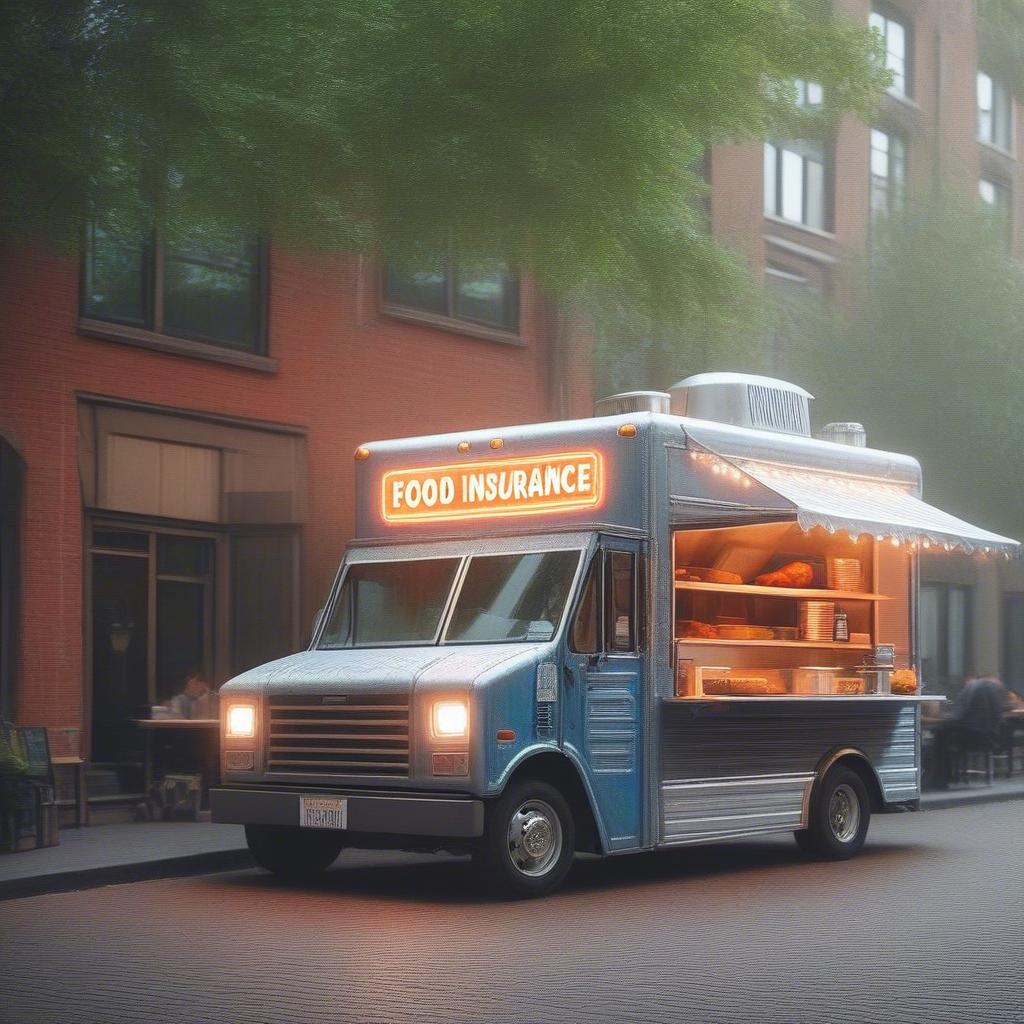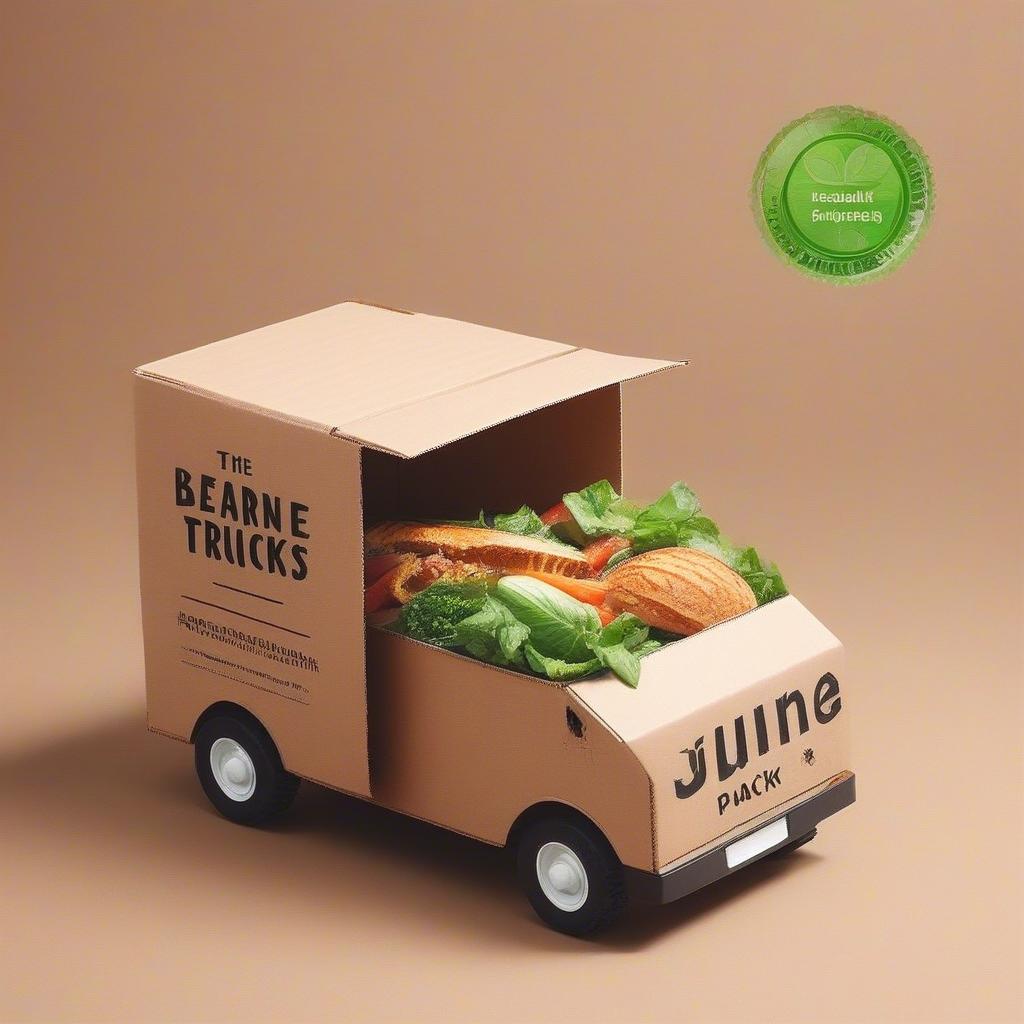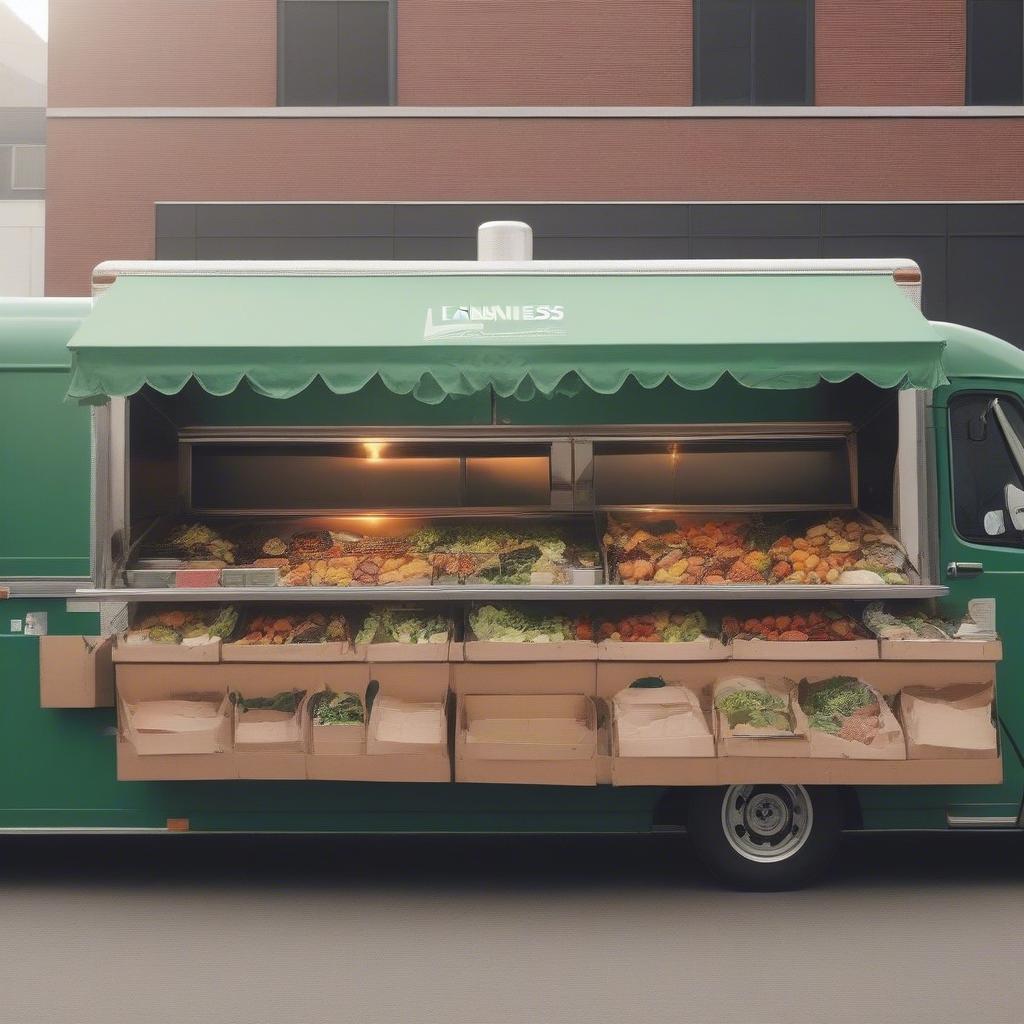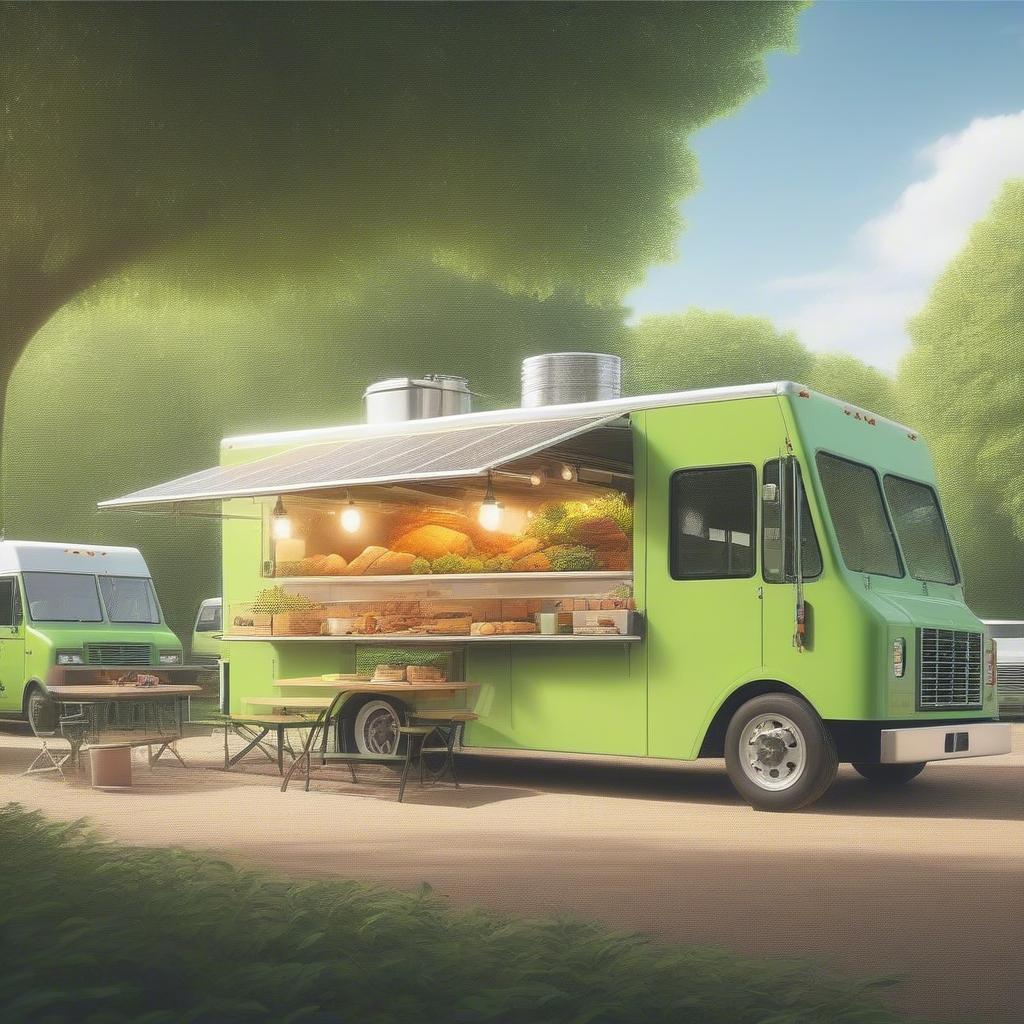
Operating a food truck is an exciting adventure, a blend of culinary passion and entrepreneurial spirit. But like any business, it comes with its own set of risks. That’s where food truck insurance steps in, your essential safety net, protecting you from unexpected events that could derail your mobile kitchen dreams. This guide will break down everything you need to know about insuring your food truck, from the types of coverage available to how to choose the right policy for your unique needs.
Why Do You Absolutely Need Food Truck Insurance?
Before we dive into the specifics, let’s address the fundamental question: Why is food truck insurance so vital? It’s not just a piece of paper; it’s your shield against potential financial ruin.
The Reality of Risks in the Food Truck Business
Operating a food truck is far from risk-free. Imagine these scenarios:
- Accidents Happen: You’re maneuvering your truck through a busy street and accidentally bump into another car. Repair bills, potential lawsuits, and loss of income suddenly become very real.
- Customer Mishaps: A customer slips and falls near your truck, injuring themselves. You could be liable for their medical bills and lost wages.
- Equipment Failure: Your generator suddenly gives up the ghost, leaving you unable to serve customers and potentially losing hundreds or thousands in spoiled ingredients.
- Foodborne Illness: A batch of your popular tacos makes multiple customers ill due to accidental contamination. This could lead to a costly recall and damage to your brand reputation, not to mention potential legal issues.
- Theft and Vandalism: Overnight, your truck is broken into and valuable equipment is stolen. Without insurance, you would bear the entire loss.
These are just a few examples of the many potential pitfalls. Food truck insurance is not an optional add-on, it’s a non-negotiable part of operating a safe and sustainable business. It’s your safety net, providing financial protection and peace of mind so you can focus on what you do best: creating amazing food.
The Legal and Financial Implications
Beyond the immediate impacts, consider the legal and financial repercussions of running a food truck without adequate insurance:
- Financial Burden: Without insurance, you’re personally responsible for damages, medical bills, and legal fees, potentially leading to significant debt or even bankruptcy.
- Legal Battles: Lawsuits can be incredibly expensive and time-consuming. Insurance helps cover legal defense costs and settlements.
- Contract Requirements: Many venues and events require proof of insurance before allowing you to operate. Without it, you’ll be excluded from prime earning opportunities.
- Lender Requirements: If you have financed your truck, lenders usually mandate insurance to protect their investment.
In short, food truck insurance is not just a matter of good business practice; it’s often a legal and financial necessity. It’s a crucial tool for protecting your hard work and ensuring your business’s longevity.
Essential Types of Food Truck Insurance Coverage
Now that you understand why you need insurance, let’s explore what kind of coverage you need. Here’s a breakdown of the most important types:
1. Commercial Auto Insurance: Your Wheels Covered
Just like your personal car, your food truck needs its own dedicated auto insurance policy. But this isn’t just a standard auto policy; it’s a commercial auto insurance policy tailored to your business needs. This policy covers:
- Bodily Injury Liability: Protects you if you cause an accident that injures someone else.
- Property Damage Liability: Protects you if you damage someone else’s property in an accident.
- Collision Coverage: Pays for damage to your truck if it collides with another object, regardless of who’s at fault.
- Comprehensive Coverage: Covers damages to your truck from non-collision events such as fire, vandalism, theft, or weather-related incidents.
- Uninsured/Underinsured Motorist Coverage: Protects you if you’re hit by a driver who has no insurance or insufficient coverage.
Example: You’re backing into a parking space and accidentally hit a lamppost. Your collision coverage will help pay for the repairs to your truck, while your property damage liability might cover the damage to the lamppost.
2. General Liability Insurance: Covering Customer Mishaps
General liability insurance is arguably the most important type of coverage for any business, including food trucks. It protects you from claims of bodily injury or property damage caused by your business operations. This coverage is essential because of the high volume of customer interaction in this type of business.
- Customer Injuries: If a customer slips and falls near your truck and injures themselves, this policy would help cover medical expenses, lost wages, and legal costs.
- Property Damage: If you accidentally damage someone’s property while operating your food truck, this policy could cover repair costs or replacement.
- Advertising Injury: Covers claims of libel, slander, copyright infringement, or other damages related to your advertising or marketing efforts.
Example: A customer burns their mouth on hot coffee purchased from your truck and seeks medical treatment. General liability would cover the cost of their injuries.
3. Product Liability Insurance: Handling Food-Related Issues
When dealing with food, there’s always a risk of something going wrong. Product liability insurance protects you against claims related to the food you serve.
- Foodborne Illness: Covers claims resulting from illnesses caused by your food.
- Foreign Objects: If a customer finds a foreign object (like a piece of plastic or metal) in their food, this policy protects you against any resulting claims.
- Allergic Reactions: Protects you if a customer has an allergic reaction to your food that was not properly disclosed.
Example: A customer who has severe allergies has an unexpected reaction to one of your food items because of a missing ingredient listed, you could be held responsible for their medical bills. Product liability coverage would assist in paying for the expenses.
4. Workers’ Compensation Insurance: Protecting Your Team
If you have employees, workers’ compensation insurance is generally required by law. This coverage protects your team members if they’re injured on the job.
- Medical Expenses: Covers medical expenses for work-related injuries.
- Lost Wages: Pays a portion of lost wages while an employee is unable to work due to a work-related injury.
- Rehabilitation Costs: Covers costs related to physical therapy or other forms of rehabilitation.
Example: A cook strains their back while lifting a heavy bag of flour. Workers’ comp will cover medical bills and lost wages while they recover.
5. Business Property Insurance: Protecting Your Assets
Your food truck and its contents (cooking equipment, inventory, etc.) are valuable assets that need protection. Business property insurance can cover:
- Damage to Equipment: If your equipment is damaged by fire, theft, vandalism, or other covered events, this policy would help cover the cost of repairs or replacements.
- Inventory Loss: Pays for lost or damaged inventory due to a covered event.
- Loss of Income: Some policies also include business interruption coverage which can assist in lost income when you cannot operate your business due to insured damages
Example: A fire breaks out in your food truck, destroying your grill and some of your inventory. Business property insurance will help replace the damaged equipment and inventory.
6. Umbrella Insurance: An Extra Layer of Protection
Sometimes the standard liability limits of your other insurance policies aren’t enough. Umbrella insurance provides an extra layer of protection in case a major incident occurs. It kicks in when the limits of your primary policies are exhausted.
- Increased Coverage Limits: Extends your liability limits, protecting your assets in the event of a large claim or lawsuit.
- Covers Unforeseen Claims: Helps protect against some unforeseen claims that may not be covered by other policies.
Example: You are hit with a major lawsuit after multiple customers are affected by food poisoning at your food truck. An umbrella policy would help cover all costs after your general liability coverage is exhausted.
Choosing the Right Food Truck Insurance Policy
Selecting the right food truck insurance policy can feel overwhelming, but following these steps will help make the process easier:
1. Assess Your Needs
Every food truck is different. Consider the following factors when evaluating your insurance requirements:
- Type of Food: Are you serving high-risk foods (like raw or undercooked meats) that increase the risk of food poisoning?
- Location: Do you operate in a high-crime area, or in locations with severe weather patterns?
- Number of Employees: More employees mean increased risks.
- Value of Assets: The higher the value of your truck and equipment, the more coverage you’ll need.
- Events and Venue requirements: Do specific venues have minimum requirements for insurance coverage?
2. Research and Compare Quotes
Don’t settle for the first quote you receive. Shop around and compare quotes from multiple insurance providers.
- Online Quotes: Many insurers allow you to get a quote online.
- Insurance Brokers: Brokers can help you find the best policy and coverage options based on your specific needs.
- Local Agents: Local agents can provide a personal touch and help you understand the fine print of your policies.
3. Understand Your Policy
Don’t just skim your insurance documents. Make sure you thoroughly understand:
- Coverage Limits: The maximum amount the insurance will pay for a claim.
- Deductibles: The amount you pay out-of-pocket before the insurance kicks in.
- Exclusions: Specific situations that the policy does not cover.
4. Consult With Professionals
Don’t be afraid to seek professional advice. Speak with:
- Insurance Agents: Have them walk you through the specifics of your policy.
- Attorneys: Attorneys specializing in business law can provide legal insights and recommendations about risk management
- Accountants: Accountants can help determine your potential business risks and what kind of coverage you will need.
5. Regularly Review Your Policy
Your business will evolve, and your insurance needs might change. Review your policies annually or whenever your business operations undergo significant changes.
Cost of Food Truck Insurance
The cost of food truck insurance varies based on several factors, including:
- Location: Rates can vary significantly depending on the area you operate in.
- Type of Food: Insurers may consider certain foods (e.g., raw seafood) higher risk, leading to higher premiums.
- Coverage Amount: Policies with higher coverage limits and lower deductibles usually cost more.
- Claims History: A history of past claims could result in higher premiums.
- Your Driving Record: Your driving history can impact the cost of your commercial auto insurance.
While specific costs will vary, generally, food truck owners can expect to pay anywhere between $1,000 to $5,000 per year for comprehensive coverage. A good strategy is to invest a good portion of your starting capital into your insurance coverage as this is an investment in the long-term security and viability of your business.
Tips for Reducing Insurance Costs:
- Shop around: Get quotes from different insurance providers to find the best rates.
- Increase your deductible: A higher deductible will result in lower premiums, but you need to be comfortable with the increased out-of-pocket costs.
- Maintain a clean driving record: Avoid tickets and accidents to keep your commercial auto insurance rates down.
- Implement risk management strategies: Regularly assess and mitigate potential risks to reduce the likelihood of claims.
Business Tips: Managing Risks Beyond Insurance
While food truck insurance is crucial, it’s not the only element of risk management. Here are some additional strategies to keep your business safe and profitable:
1. Maintain a Clean and Safe Environment
- Regular Cleaning: Follow strict cleaning schedules to prevent the spread of germs and bacteria.
- Equipment Maintenance: Regularly inspect and maintain your equipment to ensure that it is functioning properly.
- Safety Training: Make sure that all your employees are properly trained on food safety procedures and accident prevention techniques.
2. Food Safety Best Practices
- Proper Storage: Make sure all your food is stored at the correct temperatures to prevent spoilage and foodborne illnesses.
- Correct Cooking Techniques: Ensure that food is cooked properly to kill bacteria.
- Handle food with care: Adhere to proper food handling guidelines to avoid contamination.
3. Secure Your Truck
- Parking Location: Avoid parking your truck in isolated or high-crime areas, especially at night.
- Security Systems: Consider installing a security system to protect your truck and its equipment.
- Employee Vigilance: Ensure your employees are aware of their surroundings and report any suspicious activities.
4. Legal Compliance
- Permits and Licenses: Secure all necessary permits and licenses to operate your food truck legally.
- Health Regulations: Stay up-to-date on all relevant health regulations and guidelines.
5. Review and Update Your Procedures
Regularly review your business’s operational procedures and make necessary updates. The environment is always changing, and staying ahead of the curve will help you to maintain proper risk management.
Learn Business: Your Partner in Success
At Learn Business, we understand the challenges and opportunities of running a small business. We’re committed to providing resources and support to help entrepreneurs like you succeed. Our services are designed to give you a clear roadmap to start, manage, and grow your business with confidence.
How Learn Business Can Help Your Food Truck Business
- Business Plan Templates: Creating a solid business plan is crucial for success. We offer easy-to-use templates tailored specifically for the food truck industry, ensuring you have a well-defined strategy for growth.
- Financial Forecasting Templates: Understand your finances and make informed decisions using our templates for financial forecasting.
- Risk Management Templates: Identify and mitigate potential risks to protect your business with our risk management templates.
- Marketing Plans and Templates: Attract new customers and grow your brand using our effective marketing templates and strategies.
- Operational Guides: Streamline your day-to-day operations with our easy to use guides designed to cover key topics such as setting up your truck, managing inventory and following safety best practices.
Why Choose Learn Business?
- Expert Guidance: Access expert advice and templates from a team with a wealth of experience in entrepreneurship.
- Tailored Solutions: We provide resources specific to the food truck industry.
- Ease of Use: Our templates are designed to be user-friendly and easy to implement.
- Comprehensive Support: Gain access to a wide range of resources to help you through every stage of your business.
Learn Business is more than just a service provider; we’re your partner in building a thriving food truck business. Our resources will give you a leg up in starting and managing your business so you can focus on your passion. Don’t leave your success to chance, choose the tools you need to thrive.
Final Thoughts: Insure Your Dream
Running a food truck is both exciting and challenging. By having the right food truck insurance and implementing effective risk management strategies, you’ll be well-equipped to handle the bumps in the road. Don’t let potential risks derail your aspirations. Protect your investment, your livelihood, and your peace of mind. The culinary adventure awaits, and with the right preparation and support, it will be an incredible journey. We hope this comprehensive guide has provided you with the knowledge and tools you need to embark on your food truck adventure with confidence. Remember, food truck insurance is not just an expense; it’s an investment in your future. Combine this knowledge with tools and templates provided by Learn Business to help ensure that you are prepared for any scenario.



Leave a Reply